The Joker Is Wild

Brief Synopsis
Cast & Crew
Charles Vidor
Frank Sinatra
Mitzi Gaynor
Jeanne Crain
Eddie Albert
Beverly Garland
Film Details
Technical Specs

Synopsis
In prohibition-era Chicago of the late 1920s, up-and-coming nightclub singer Joe E. Lewis is the top attraction at Club 777, a speakeasy owned by gangster Georgie Parker. Ignoring the warnings of his friend and accompanist, Austin Mack, as well as a death treat from Georgie's henchman, Tim Coogan, Joe leaves Club 777 and accepts a job from Harry Bliss, the owner of an upper class nightspot, The Valencia. After opening at the new club, Joe signs a recording contract with Blue Label Records, but his rising career comes to a crashing halt weeks later when his throat is cut by Coogan. Though he survives the gangster's attack, Joe's vocal cords are permanently damaged, ending his singing career. Soon after his release from the hospital, Joe disappears and Coogan is murdered, but Austin and Swifty Morgan are both relieved to learn from the police that their friend was not the killer. Years later, in 1937, Swifty runs into Joe at a New York racetrack. Discovering that Joe has been reduced to working as a silent clown in a burlesque house, Austin and Swifty arrange for their old friend to appear in a Variety Club benefit being headlined by Austin's new boss, Sophie Tucker. When he tries to sing, however, Joe is unable to hit his high notes, so he does an impromptu stand-up routine instead. His performance is a big hit, especially with socialite Letty Page. Despite his insecurity about the differences in their social backgrounds, Joe and Letty are soon seeing each other regularly, and Joe starts a new career as a nightclub comedian, with Austin once again his accompanist. On the closing night of his highly successful Miami run, Joe announces two new engagements: his upcoming New York opening at the Copacabana, and his marital engagement to Letty. After returning to New York, however, Joe is told by his physician that his chronic alcoholism is killing him, and then learns his Copa opening has been cancelled following the Japanese attack on Pearl Harbor. Joe breaks his engagement to Letty and leaves on an overseas U.S.O. tour with Austin. Returning stateside months later, Joe has a change of heart and decides to settle down with Letty, only to learn from Cassie, Austin's wife, that his ex-fiancée has already married someone else. On the rebound, Joe marries Martha Stewart, one of the dancers in his nightclub act. Rather than leaving on a honeymoon, the two immediately go back to work, with Joe returning to the nightclub circuit, while Martha pursues an acting career in Hollywood. The newlyweds see little of each other, as she works all day, and he performs, drinks and gambles all night. Realizing that her marriage is in shambles, Martha follows Joe to Las Vegas, and, in a drunken stupor, she asks him for a divorce. That night, Joe attacks a heckler who insults Martha, and in the ensuing scuffle, he mistakenly punches Austin. With both his wife and his best friend lost to him, Joe returns to Chicago after a three-week hospital stay, where he visits the boarded-up Club 777. As visions from his past haunt him in various storefront windows, Joe is finally forced to look at himself and realizes that there is a life beyond the bottle. Having spent much of his life making others laugh, Joe now pledges to find humor and enjoyment in life for himself.

Director

Charles Vidor
Cast
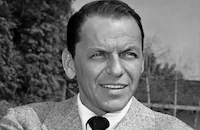
Frank Sinatra

Mitzi Gaynor
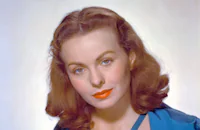
Jeanne Crain

Eddie Albert

Beverly Garland

Jackie Coogan
Barry Kelley
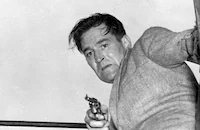
Ted De Corsia
Leonard Graves

Valerie Allen
Hank Henry

Sophie Tucker
Dennis Mcmullen

Wally Brown
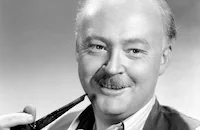
Don Beddoe
Paul Bryar
Len Hendry
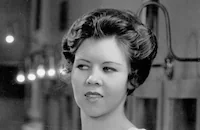
Mary Treen
Paul T. Salata
Bill Hickman
John D. Benson
Frank Mills
David M. Seigel
Robert D. Asquith
Larry M. Knight
Arturo Petterino
Cosmo Sardo

Harold Huber
Ned Glass
Ned "ed H." Wever
Walter Woolf King
Fred Catania

Sidney Melton
Dick Elliott
Billie Bird
John Harding
Ned Lefevre
Maurice Hart
Bill Baldwin
Ralph Montgomery
Billy Snyder
Joseph Donte
Paul Gary
Leon Martin
Russell Bender
Arthur Lewis
Bill Meader
Alan Paige
Lucy Knoch
Donna Jo Gribble
Phyllis Douglas
Florine Carlan
Audrey Lowell
Edith Claire
Dorothy Johnson
Ruby Fleming
Darlene Fields
William Pullen
F. Oliver Mcgowan
Harriette Tarler
Paula Hill
James J. Cavanaugh
Jan Bradley
George Offerman
Benny Burt
Ron Mcneil
James Cross
Joanna Lee
Reita Green
Hedi Duval
Anne Stebbins
Mabel Rea
Eric Alden
Jann Darlyn
Regina Gleason
Helene Marshall
June Tolley
Audrey Conti
Estelle Lawrence
Llorna Jordan
Jack Kenney
Gilbert Casino
Robert Strong
Richard Kipling
Pat Moran
Dave White
Hom Wing Gim
Mary Ellen Gleason
Kit Guard
Shirley Falls
Kenner G. Kemp
Eric Wilton
Kathleen Gallant
Paul Millard
Edward Ingram
Howard Joslin
Mike Mahoney
Crew
Lloyd Allen
Roland Anderson
Gus Arnheim
Howard Beals
Samuel J. Briskin
Sammy Cahn
Harry Caplan
C. C. Coleman Jr.
Sam Comer
Henry Creamer
Walter Donaldson
Everett Douglas
Josephine Earl
Daniel L. Fapp
Fred Fisher
Friedrich Von Flotow
Arthur Freed
John P. Fulton
John W. Green
Grace Gregory
Charles Grenzbach
Harry Harris
Edith Head
Anne Herbert
James P. Johnson
Sam Ledner
Harold Lewis
Abe Lyman
Nellie Manley
Charles Morton
Hal Pereira
Bean Pondel
Ralph Rainger
Nelson Riddle
Leo Robin
James Rosenberger
Oscar Saul
Walter Scharf
James Van Heusen
Charles Vidor
Frank Westmore
Wally Westmore

Photo Collections
Videos
Movie Clip



Trailer
Hosted Intro
Film Details
Technical Specs

Award Wins
Best Song
Articles
The Joker is Wild
Based on the best-selling biography by Art Cohn, The Joker Is Wild is set in Chicago in the late 1920s when Prohibition was in full swing. At the time, Joe E. Lewis was a rising singer with a regular gig at Club 777, a speakeasy owned by the gangster Georgie Parker. When the owner from the Valencia, a much classier nightclub, offers Joe the headliner spot at his place, Lewis leaps at the opportunity, despite a dire warning from his current employer, and takes his pianist Austin Mack with him. It's a decision that almost cost Lewis his life. A few weeks after his premiere at the Valencia, Lewis was attacked in his hotel room, severely beaten (his skull was fractured) and left for dead with his throat cut. He miraculously survived but the throat slashing ended his singing career. In an attempt to support himself in the only business he knew, he began working as the stooge in comic vaudeville acts. His career hit a turning point though when he was encouraged to sing on stage again by the legendary singer Sophie Tucker. With his voice too obviously damaged to hit the high notes, Lewis used his self-deprecating humor to disarm the audience and suddenly realized his talent for impromptu stand-up comedy. Even though he builds a new career for himself as a nightclub comedian, the psychic scars left by his maiming run deep and drive him to alcoholism and self-destructive behavior. His uphill battle for self-control ends up taking a considerable toll on his personal and professional relationships and marriage before he finally decides to embrace sobriety.
As usual with film biographies, some liberties were taken with the facts in Lewis's story. According to journalist Hazel Flynn, who knew Lewis in the early days of his career, the entertainer was not a particularly gifted singer and was always more talented as a comic. She also pointed out that the owner of the Rienzi Cafe (renamed Club 777 in the film) had invested a lot of money in promoting Lewis (he bought him clothes and took him on vacations) and had even refurbished his nightclub for his star attraction when Lewis walked out on him. So his vendetta against the entertainer was not merely a matter of pride over losing him to the Rendezvous, a rival establishment (identified as the Valencia in the movie). Interestingly enough, Lewis was said to be the only Chicago comedian who could make gangster Al Capone laugh. Yet it was Capone's close associate, "Machine Gun" Jack McGurn who ordered Lewis's near-fatal attack.
The making of The Joker Is Wild turned out to be fortuitous for two members of the production - songwriter Sammy Cahn whose hit "All the Way" would win the Best Song Oscar® thanks to Sinatra's heartfelt rendition and musical director/composer Walter Scharf who was hired by director Charles Vidor due to Sinatra's insistence. Scharf, who already had several Oscar® nominations to his credit, would go on to greater success, accumulating three more Academy Award nominations for Funny Girl (Best Music Score, 1968), Willy Wonka and the Chocolate Factory (Best Music Score, 1971) and Ben (Best Original Song, 1972). In the Michael Freedland biography of Frank Sinatra, All the Way, Scharf recalled that the filming of The Joker Is Wild centered completely around Sinatra's schedule: "We did things the French way - which sounds a lot more sexy than it really is. It meant that we started work at noon and worked through to about seven in the evening." Not everyone liked this routine since it often meant missing dinner with their own families but Sinatra laid down the law, saying "My theory is, actors are creators. Anyone else who creates something is allowed to do it when he wants to. What we have to do - playing a love scene, for example - is difficult to do at nine a.m. I work better, sing better, later in the day. That's why I only record at night."
For all of the musical numbers in the film, Sinatra demanded that they be recorded live in a real nightclub in order to capture the spontaneity of the performance. Lip-synching was not acceptable to him. "When I do a concert and someone coughs, I like that," Sinatra remarked. "I like the scraping of chairs. You get the feeling that it's really happening. I've always thought Lewis was one of only about four or five great artists in this century - one of them was Jolson - and I remember him screaming like the devil when he made a soundtrack." (from All the Way: A Biography of Frank Sinatra.)
As for Sinatra's performance as Lewis, Scharf noted that the singer "was consciously studying Joe E. Lewis. He finished sentences with a question mark. He would take an adverb and use it as something he would say afterwards." He certainly captures the comedian's cynical side on stage with such cutting lines as "A friend in need is a pest" or makes light of his own alcoholism with such famous remarks as "You're not drunk enough if you can still lie on the floor without hanging on." In fact, the least convincing aspect of The Joker Is Wild is Sinatra's recreation of Lewis's stage act; it's more likely to arouse pity than laughter. Jokes about inebriation, hangovers and gambling might have been funny during Prohibition but now they seem like desperate cries for help. Certainly what works best in the film is Sinatra's morose self-pity and despair which hits a peak in an early scene when he returns to consciousness after his hospital ordeal. Seeing his bandaged head and barely able to speak, the full impact of what has happened to him hits and he begins to claw at the door, moaning like a wounded animal. It's as powerful a moment as anything he did in From Here to Eternity or The Man with the Golden Arm (1955).
The final scene in The Joker Is Wild is anti-climactic in more ways than one. Talking to his reflection in a glass window, Lewis vows to clean up his act and stop drinking after his wife has left him. In real life, Lewis never quite managed to quit the bottle and eventually died in 1971 from alcohol-related causes. For those who want to catch a glimpse of the real Joe E. Lewis, you can spot him as Lancelot Pringle McBiff in the 1942 army musical, Private Buckaroo or playing himself in the Frank Sinatra detective drama, Lady in Cement (1968).
As for those who prefer Sinatra the singer to Sinatra the actor, there is still reason enough to watch The Joker Is Wild which includes Frank's versions of such popular standards as "I Cried For You," "If I Could Be With You," "Chicago," "Swinging on a Star," and "Out of Nowhere." Unfortunately two songs were omitted because of their sexually suggestive lyrics - "Greatest Little Sign in the World" by James Van Heusen and Sammy Cahn and "The Bird Song" by Ben Oakland and Eddie Maxwell.
In addition to Sinatra, The Joker Is Wild is well cast with particular standout roles for Eddie Albert as his loyal accompanist Austin, Beverly Garland as Austin's no-nonsense wife Cassie, Jeanne Crain as Letty Page, the beautiful socialite that Lewis drives away, and Mitzi Gaynor as Martha, a chorus girl who becomes Lewis's wife.
The Joker Is Wild opened to generally favorable reviews with most critics praising Sinatra's performance. Los Angeles Times reviewer Phillip K. Scheuer wrote that Sinatra "catches the bitter inner restlessness almost too well...When Lewis, highball in hand, is reciting them [the drunk monologues] his natural clown's grin takes the curse off their cynicism; from Sinatra the gags come out bitter and barbed." And Gordon Gow in Films and Filming noted that "One consolation in the glossy gloom of this downbeat drama is that Frank Sinatra has sufficient talent and taste to break through the wall of embarrassment that is bound to arise between an audience and the film case-history of an unanonymous alcoholic."
One final bit of trivia: Sinatra and Joe E. Lewis were friends in real life and socialized frequently but following the premiere of the film Sinatra publicly snubbed his old friend in a famous incident. Lewis was performing at the El Rancho Vegas with Sinatra and his date Lauren Bacall in attendance in the audience. When Lewis asked Sinatra to join him on stage with a song, the singer refused and left the club. It was common knowledge in Las Vegas that Sinatra never performed anywhere in that town except the Sands (was this his rule or a Mafia edict?) but Lewis apparently had forgotten that. At any rate, Sinatra later apologized and patched up their riff.
Producer: Samuel J. Briskin, Charles Vidor
Director: Charles Vidor
Screenplay: Art Cohn (novel), Oscar Saul
Cinematography: Daniel L. Fapp
Film Editing: Everett Douglas
Art Direction: Roland Anderson, Hal Pereira
Music: Chauncey Gray, Harry Harris, Walter Scharf, Jimmy Van Heusen
Cast: Frank Sinatra (Joe E. Lewis), Mitzi Gaynor (Martha Stewart), Jeanne Crain (Letty Page), Eddie Albert (Austin Mack), Beverly Garland (Cassie Mack), Jackie Coogan (Swifty Morgan).
BW-126m.
by Jeff Stafford

The Joker is Wild
Eddie Albert (1906-2005)
The son of a real estate agent, Albert was born Edward Albert Heimberger in Rock Island, Ill., on April 22, 1906. His family relocated to Minneapolis when he was still an infant. Long entralled by theatre, he studied drama at the University of Minnesota. After years of developing his acting chops in touring companies, summer stock and a stint with a Mexican circus, he signed a contract with Warner Bros. and made his film debut in Brother Rat (1938). Although hardly a stellar early film career, he made some pleasant B-pictures, playing slap happy youths in Brother Rat and a Baby (1940), and The Wagons Roll at Night (1941).
His career was interrupted for military service for World War II, and after his stint (1942-45), he came back and developed a stronger, more mature screen image: Smash-Up: The Story of a Woman (1947); Carrie (1952); his Oscar® nominated turn as the Bohemian photographer friend of Gregory Peck in Roman Holiday (1953); a charming Ali Hakim in Oklahoma (1955); and to many critics, his finest hour as an actor, when he was cast unnervingly against type as a cowardly military officer whose lack of commitment to his troops results in their deaths in Attack! (1956).
As he settled into middle-age, Albert discovered belated fame when he made the move to Hooterville. For six seasons (1965-71), television viewers loved Eddie Albert as Oliver Wendal Douglas, the bemused city slicker who, along with his charming wife Lisa (Eva Gabor), takes a chance on buying a farm in the country and dealing with all the strange characters that come along their way. Of course, I'm talking about Green Acres. If he did nothing else, Alberts proved he could be a stalwart straight man in the most inane situations, and pull it off with grace.
After the run of Green Acres, Albert found two of his best roles in the late stages of his career that once again cast him against his genial, good-natured persona: the fiercly overprotective father of Cybill Shepherd in The Heartbreak Kid (1972), for which he earned his second Oscar® nomination; and the sadistic warden in Robert Aldrich's raucous gridiron comedy The Longest Yard (1974). Soon, Albert was in demand again, and he had another hit series, playing a retired police officer who partners with a retired con artist (Robert Wagner) to form a detective agency in Switch (1975-78).
The good roles slowed down slightly by the dawn of the '80s, both film: The Concorde: Airport '79 (1979), How to Beat the High Co$t of Living (1980), Take This Job and Shove It (1981); and television: Highway to Heaven, Murder, She Wrote, Thirtysomething, offered him little in the way of expansion. Yet, Albert spent his golden years in a most admirable fashion, he became something of activist for world health and pollution issues throughout the latter stages of his life. It is widely acknowledged that International Earth Day (April 22) is honored on his birthday for his tireless work on environemental matters. Albert was married to famed hispanic actress Margo (1945-85) until her death, and is survived by his son, actor Edward Albert, a daughter, and two granddaughters.
by Michael T. Toole
Eddie Albert (1906-2005)
Quotes
Trivia
Notes
The working title of this film was The Joker. The opening credits include the following citation: "Specialty Songs and Parodies by Harry Harris." According to Time, the real Joe E. Lewis' greatest claim to fame was that he was one of the very few comedians on the Chicago nightclub circuit who could make noted mobster Al Capone laugh. However, Lewis ran afoul of "Machine Gun" Jack McGurn, who had the nightclub performer's throat slashed and his skull fractured, as depicted in the film.
In a September 1957 article in Beverly Hills Citizen, newspaperwoman Hazel Flynn, an old friend of Lewis from his Chicago days, refutd some of the details of Lewis' life, as depicted in The Joker Is Wild. She stated that Lewis was never a talented singer, having been a comedian from the very beginning of his career. Further, she argued that Lewis was not almost killed over his right to work where he pleased, as portrayed in the film, as most cafés in prohibition-era Chicago were owned by gangsters. In actuality, the owner of Rienzi Café had spent a great deal of money promoting Lewis and had even gone so far as to remodel the club for the comedian. In addition, the club owner felt personally betrayed by Lewis, as he had befriended the up-and-coming nightclub performer, buying him new clothes and taking him on vacations. Lewis, however, left Rienzi for another mob-run nightclub simply to make more money and gain greater exposure. Flynn stated that she was at Rienzi the night the remodeled club reopened without Lewis and overheard gangsters openly talking about killing the comedian. However, when Lewis opened without incident at the new club, she and other Chicago reporters of the time assumed the mobsters had a change of heart. Weeks later, however, Lewis suffered his near-fatal attack, as depicted in the film.
In October 1955, Los Angeles Times reported that Lewis turned down $150,000 from M-G-M for the film rights to his life story, instead opting to have it produced as an independent feature by his old friend, Frank Sinatra. Variety reported in November 1955 that Paramount had agreed to finance the independent production, which was to be headed up by Lewis, Sinatra, director Charles Vidor and Art Cohn, author of the Lewis biography The Joker is Wild, under the corporate name A.M.B.L. Productions. The studio agreed to pay the four partners $400,000, along with seventy-five percent of the film's net profits, and assigned Samuel J. Briskin to oversee the film's production. According to New York Times, Sinatra's share of the partnership was $125,000, along with twenty-five percent of the film's profits. The Daily Variety review points out that supporting actor Hank Henry was the "perpetual motion comic at Las Vegas' Silver Slipper."
According to the file on the film in the MPAA/PCA Collection at the AMPAS Library, the songs "Greatest Little Sign in the World," by James Van Heusen and Sammy Cahn, and "The Bird Song," by Ben Oakland and Eddie Maxwell, were submitted to the PCA for use in The Joker Is Wild, but were rejected outright for their sexually suggestive lyrics. Van Heusen and Cahn received an Academy Award for their musical composition "All the Way," which became one of Sinatra's signature songs.
Hollywood Reporter news items include Percy Helton in the cast, but he was not in the print viewed. The Joker Is Wild marked the last film of long-time character actor Harold Huber (1904-1959). Modern sources add the following names to the crew credits: Orchestration Leo Shuken and Jack Hayes.
Modern sources also report that a controversial event occurred following the film's premiere in Las Vegas, when Sinatra and his date, actress Lauren Bacall, walked out of Lewis' show at the El Rancho Vegas after the comedian, contrary to a prior agreement with his old friend, asked Sinatra to join him on stage and sing a song. It was claimed that a drunken Lewis had forgotten that Sinatra made it a policy never to perform anywhere in Las Vegas other than the Sands.

Miscellaneous Notes
Released in United States 1998
Released in United States Fall October 1957
VistaVision
Released in United States 1998 (Shown in New York City (Walter Reade) as part of program "A Salute to Sinatra" August 21 - September 8, 1998.)
Released in United States Fall October 1957















